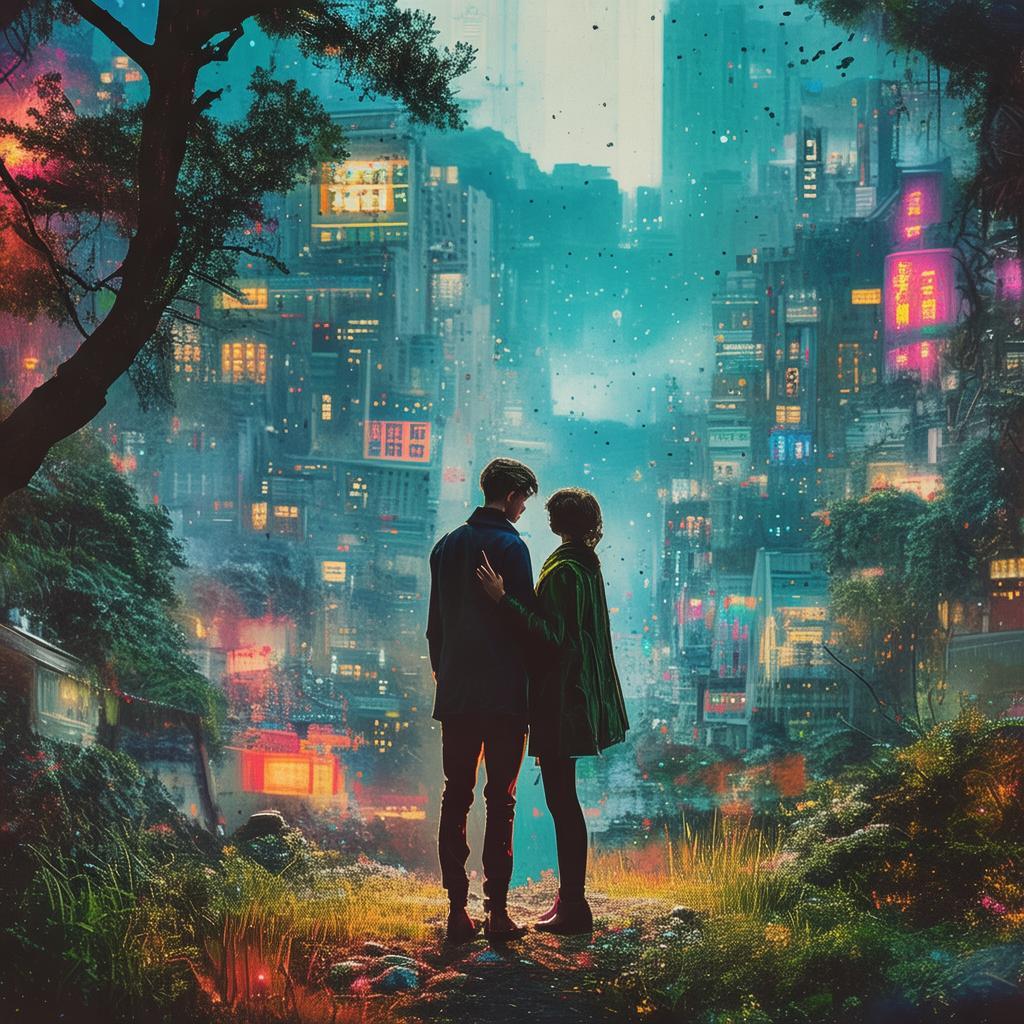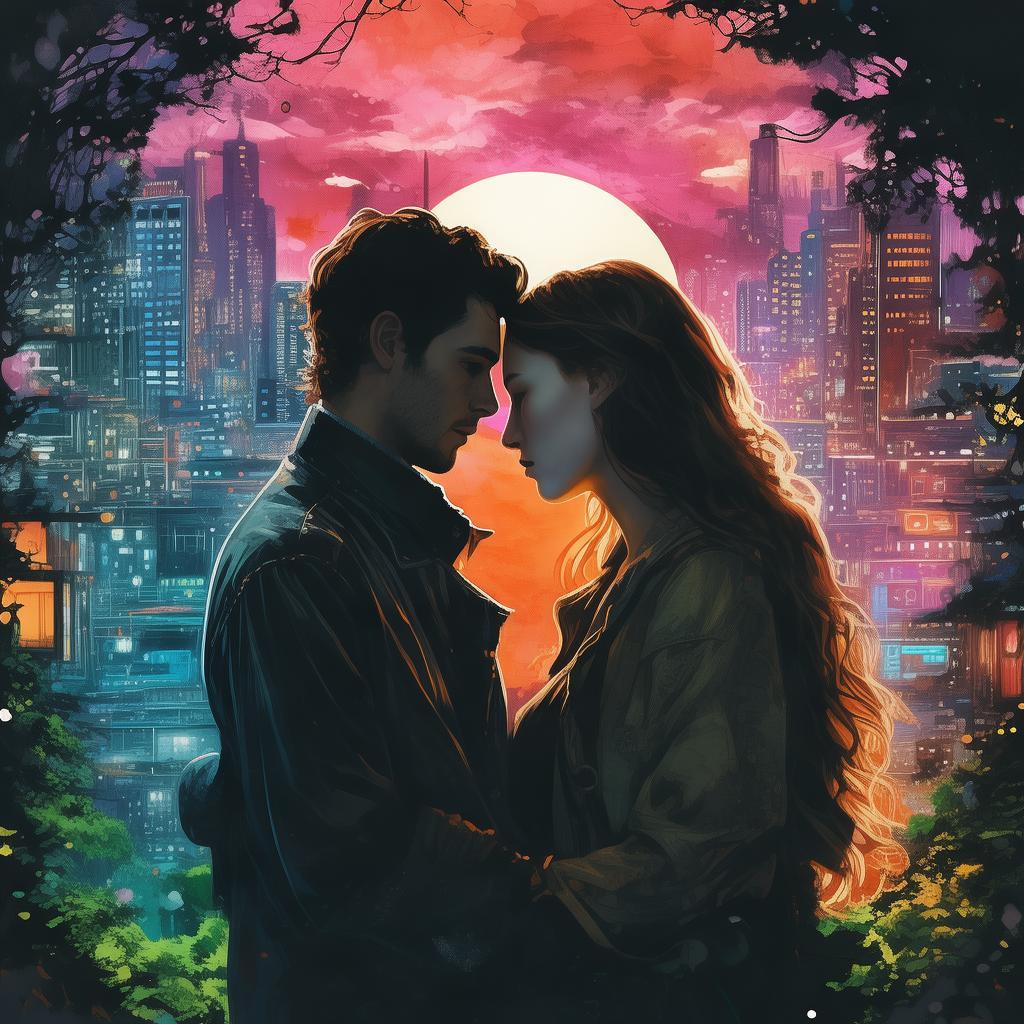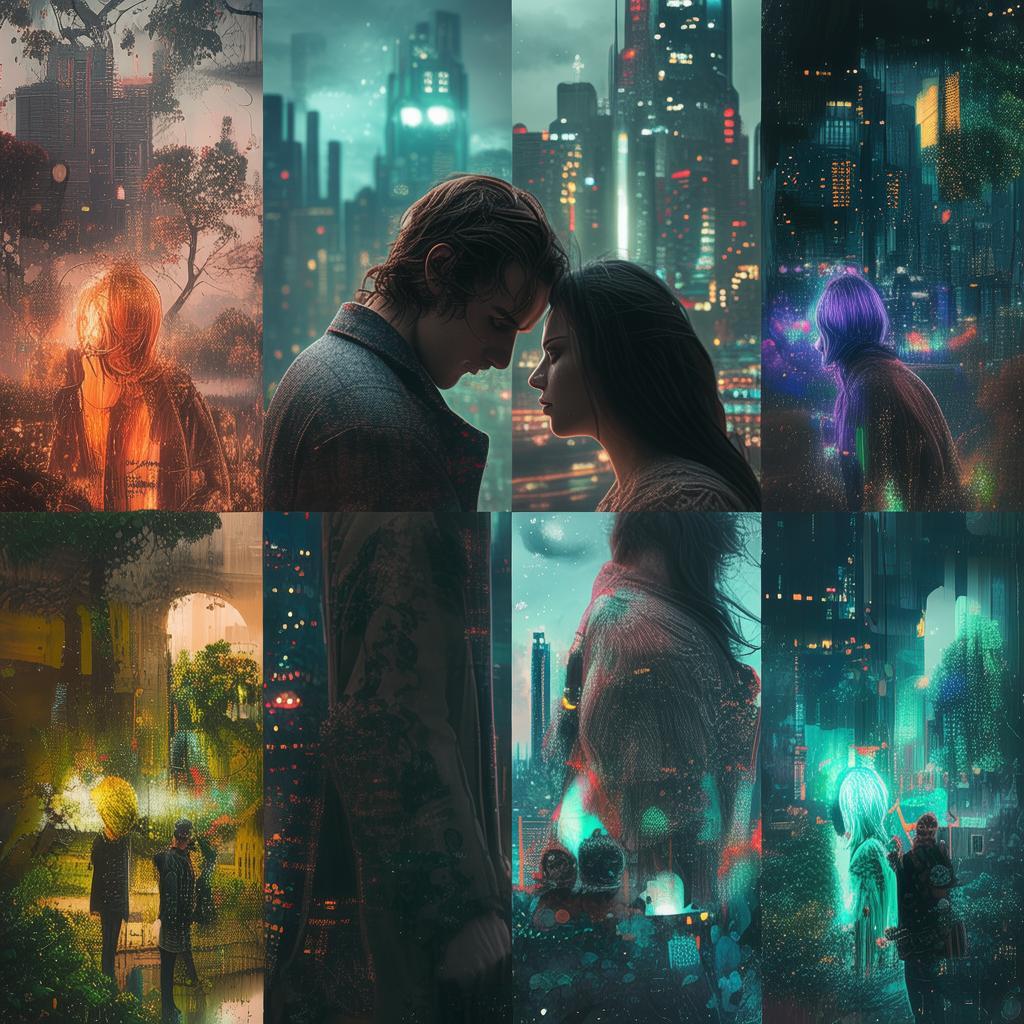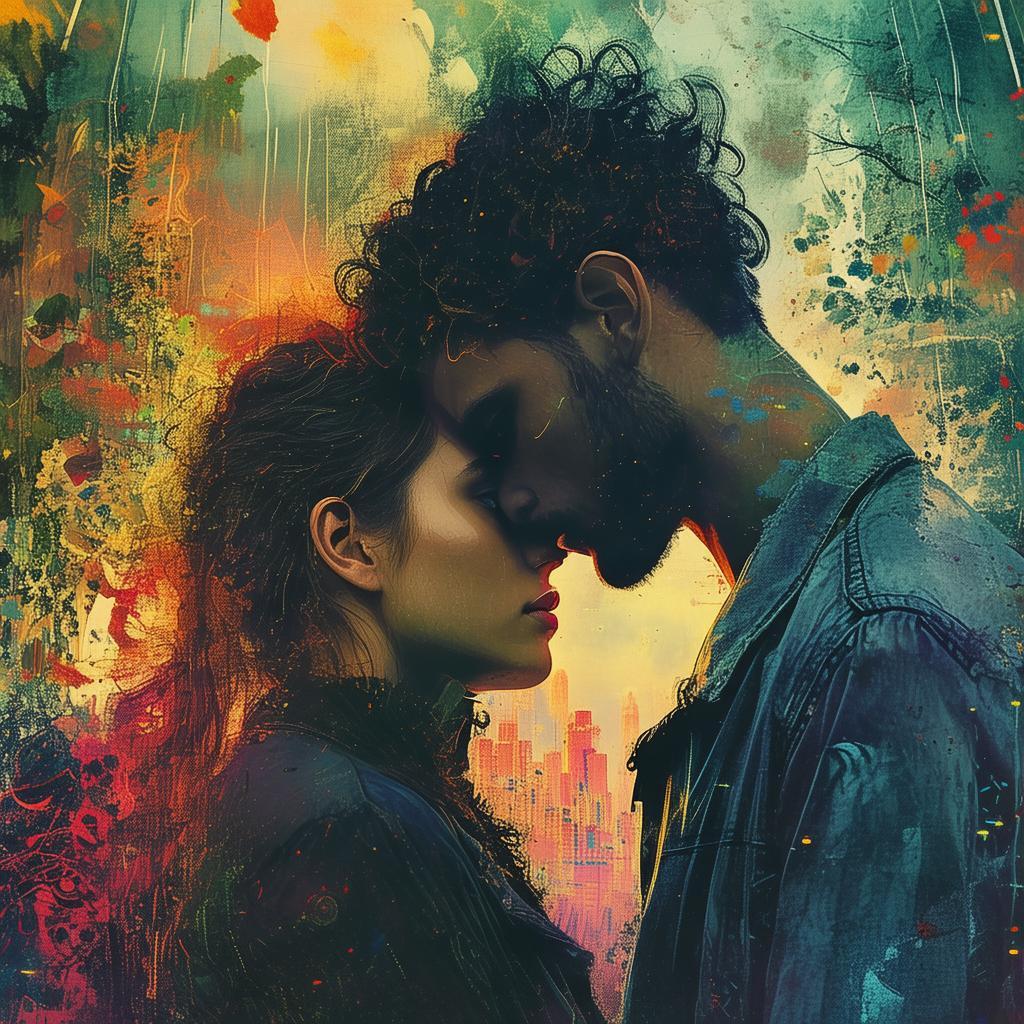The Corpse's Duet: A Gothic Lament
In the shadowy corners of the abandoned opera house, where cobwebs whispered secrets of bygone nights, there lived a Corpse, draped in the velvet of forgotten elegance. His eyes, once a window to the world, now hollow and cold, gazed upon the stage where life danced and sang. Yet, his own form lay still, a testament to the finality of death.
The Muse, a wraith of the artistic, a ghost of the imaginative, floated above the stage, her voice a haunting melody that seemed to echo through the empty hall. She was the life that danced in the wings, the love that could never touch the Corpse below.
Their story began on a night when the moon hung heavy in the sky, casting a pale glow over the stage. The Corpse, though dead, felt the pull of the Muse's song, a siren call that beckoned him from his eternal slumber. "Why do you sing for the living when I yearn for your melody?" the Corpse whispered, his voice a ghostly echo.
The Muse paused, her eyes flickering with the spark of curiosity. "Why, Corpse, because I am the keeper of life's tales, and life is but a fleeting breath."
The Corpse, with a sorrow that seemed to weigh his bones, replied, "Yet, in this opera, where the dead and the living share the same stage, why must my story remain silent?"
The Muse's form shimmered, her presence tangible, yet ethereal. "For the living must learn to dance, to sing, to live their own stories. Your tale, Corpse, is for the echoes of the past."

The Corpse, feeling the weight of his words, began to stir. "Then, I shall compose a duet for us, a lament for the love that can never be, a duet for the Corpse and the Muse."
The Muse smiled, a ghostly flicker of warmth in her form. "Very well, Corpse. Let us dance together, if only in the memory of the music that once filled this place."
And so, they began to dance, the Corpse on the ground, his movements guided by the Muse's unseen hand, and the Muse above, her steps light as a wisp of smoke. Their duet, a haunting melody that mixed the Corpse's whispers with the Muse's haunting voice, filled the air with a sense of longing and loss.
The audience, long gone, were unseen, yet felt the presence of the Corpse and the Muse, their love story a ghostly ballet that captivated those who had the courage to witness it.
As the duet reached its climax, the Corpse's form seemed to glow, as if he were the embodiment of the love he sung about. "This is my final song, Muse," he declared, his voice breaking. "For in death, I find the peace to love you truly."
The Muse's eyes welled with tears, though her form remained unchanged. "And in life, I will sing your song, Corpse, for you are the essence of my art, the silent partner to my performance."
With a final, heartfelt note, the Corpse's form seemed to dissolve into the very fabric of the stage, leaving only his melody to linger in the air. The Muse, her heart heavy with love and sorrow, continued to dance, her steps lighter, yet filled with a profound sense of purpose.
And so, in the Gothic opera, the Corpse's Love Story unfolded, a haunting melody that resonated through the ages, a testament to love that transcends life and death.
✨ Original Statement ✨
All articles published on this website (including but not limited to text, images, videos, and other content) are original or authorized for reposting and are protected by relevant laws. Without the explicit written permission of this website, no individual or organization may copy, modify, repost, or use the content for commercial purposes.
If you need to quote or cooperate, please contact this site for authorization. We reserve the right to pursue legal responsibility for any unauthorized use.
Hereby declared.









